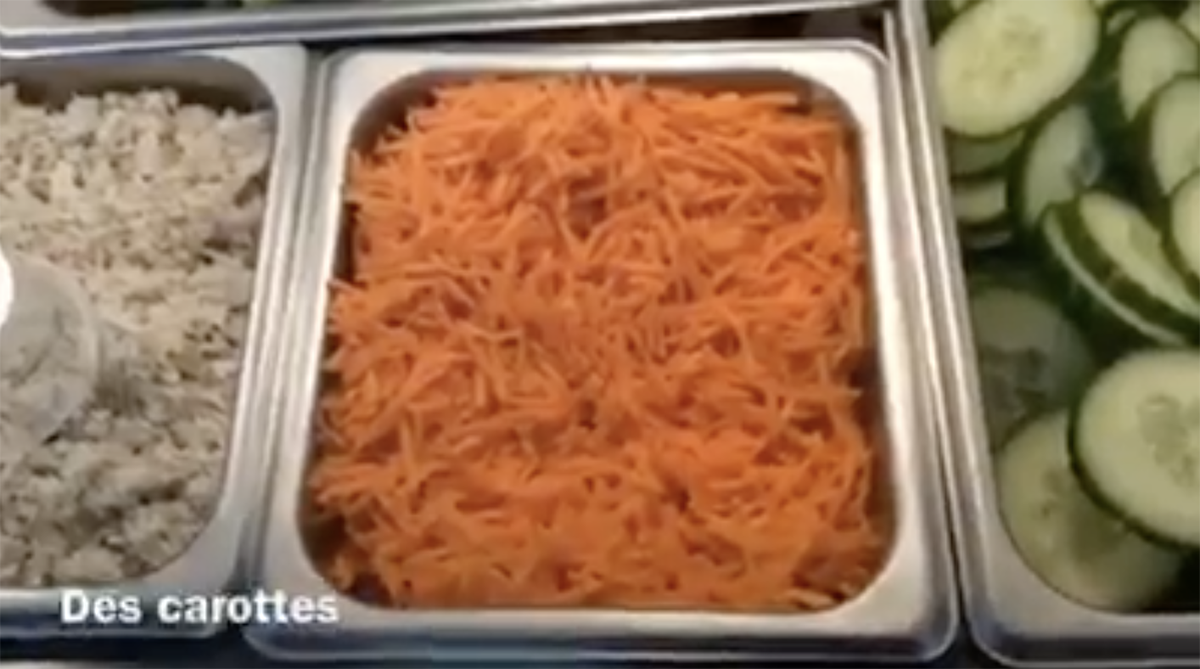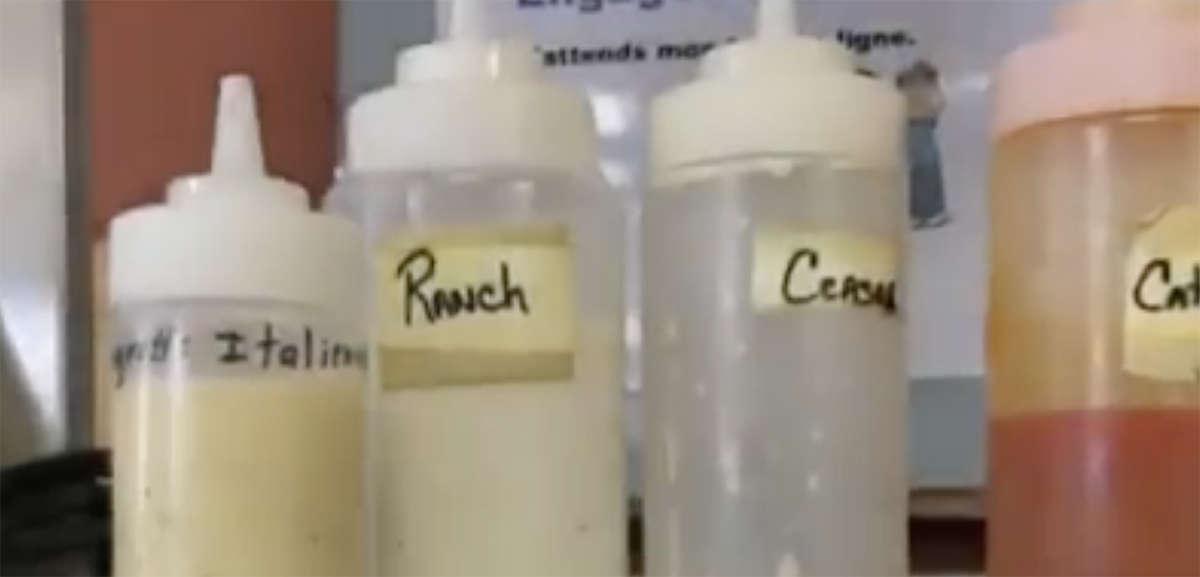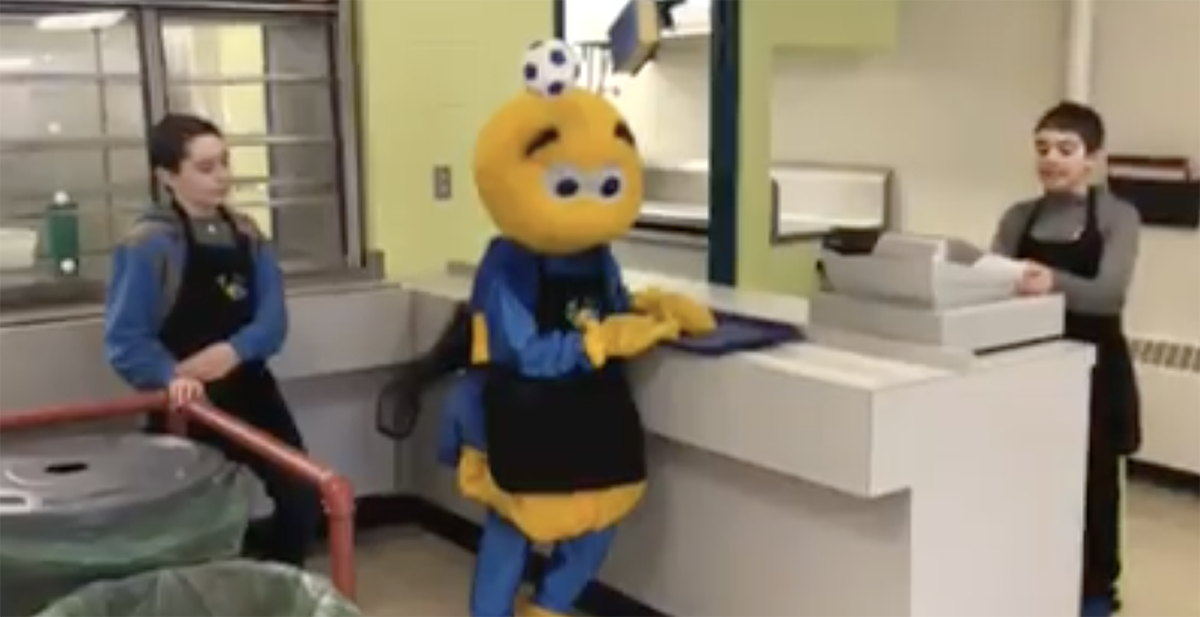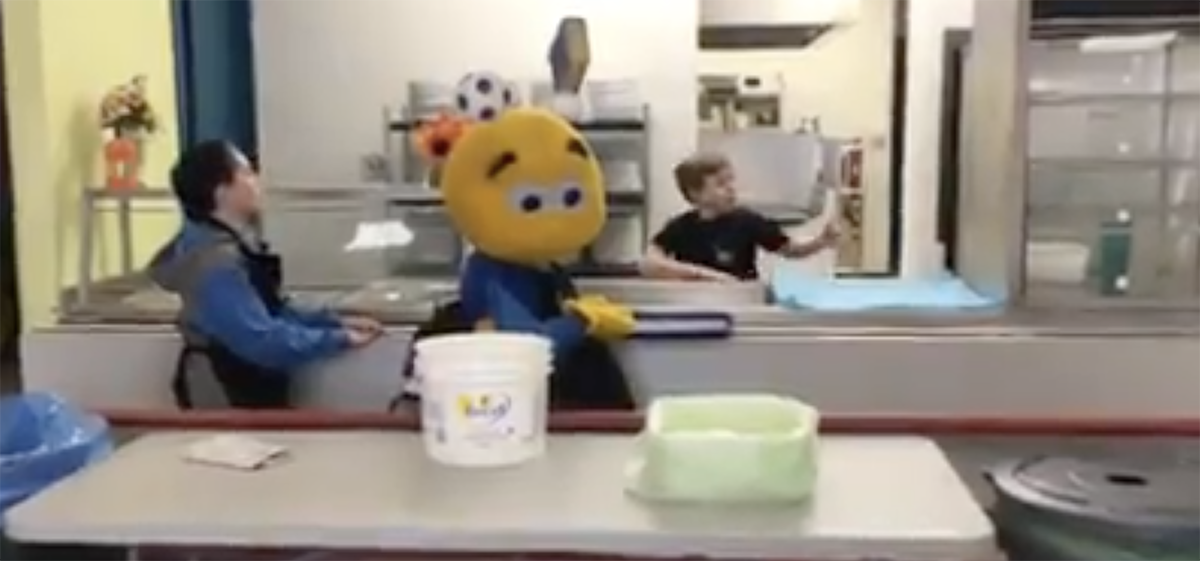It all started with an idea from the Semer dans la Vallée group of which I’m a member. We approached the school administration and the réseau des cafétérias communautaires to apply for a Farm to Cafeteria grant.
Semer dans la Vallée is a sub-committee of the Comité de Mieux-Être de Memramcook (JMEM); a group of volunteers who work to make Memramcook a vibrant community in which to live, play, work and age because everyone cares about their own health and well-being and that of others. They care for the school gardens, the school greenhouse and the gardens of the local seniors’ homes. They have been very supportive of the salad bar and offer cooking classes to students. This partnership has also encouraged sharing in the heart of the region. The students of the school are in charge of planting the plants for their garden. With students’ support, the school is now very well equipped to continue its culinary exploration.
The partnership with Semer dans la Vallée and JMEM also provides funding opportunities such as hiring summer students to tend to the garden. In summer 2021, two students were hired through the Student Employment Experience Development (SEED) program and the Canada Summer Jobs program. In order to offer a competitive salary and to increase the number of weeks that the students were hired, we reinvested the profits from the sale of soup and surplus vegetables from the garden in 2021.
L’organisme Apprenti en action – Labo éducatif en alimentation, a dynamic lab of educational food initiatives in schools and communities with a priority on the development of culinary skills, came to give training on food safety and to give a basic training on how to prepare a salad. This experience was enriching and educational for the students.
There is also incredible support from the réseau des cafétérias communautaires (RCC), which runs the cafeteria service at the school. The RCC is a self-sufficient social enterprise that serves over 20 schools in the district scolaire francophone sud. They aim to serve healthy meals made with local products. In addition, they try to create as many meaningful learning situations as possible for students, teachers and staff in connection with different partners. At Abbey-Landry School, RCC supports the salad bar by doing the food preparation and clean-up. This has been a much appreciated help.
In addition to the salad bar, the school’s garden and greenhouse are constantly evolving. We continue to explore the possibility of providing a number of foods for the salad bar. Students grow vegetables in the school’s greenhouse and garden during the school year. To enjoy the harvest as much as possible in the fall, we plant the gardens late in the spring. When the students return to school in September, they are busy harvesting. This year a cold room was set up to keep the vegetables, such as potatoes and carrots, even longer.
We are always ready to undertake new projects with our harvests. For example, during the 2020-21 school year, in partnership with a community chef, the youth prepared soups made almost entirely from vegetables picked at school. In order to maintain quality, the soups were frozen and sold to parents and the community. The proceeds were then reinvested in projects, such as hiring summer students as mentioned above!
Our big goal is to successfully introduce our youth to an ecological circular economy with different initiatives here at the school with the help of our community partners.
![]()








